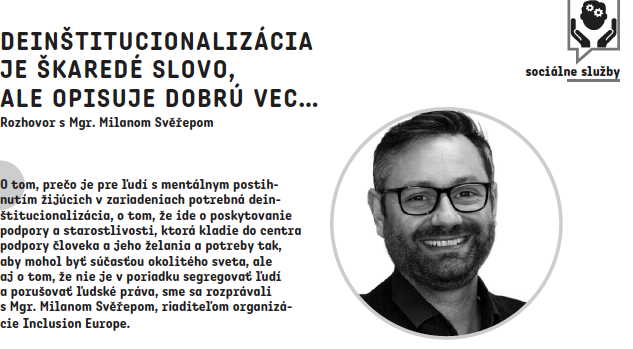-
It seems that deinstitutionalisation has become an exercise in wordsmithing
I was invited to speak during a workshop of the European Parliament’s Committee on Employment and social affairs. The workshop was about Deinstitutionalisation and independent living of persons with disabilities. The workshop, chaired by Li Andersson MEP, took place on 2 December 2024 in Brussels. Thank you for the opportunity to speak on behalf of…
-
Guidance, report, judgement
“Giving effect to independent living involves redirecting investments and resources from institutional settings and services to accessible and non-segregated places of residence, community-based services and support for persons with disabilities.” The European Commission released a Notice on “Guidance on independent living and inclusion in the community of persons with disabilities in the context of EU funding”. The Guidance…
-
“Viltis” is hope in Lithuanian 🇱🇹
I just learned that, reading about Inclusion Europe member in Lithuania, called Viltis.I always used the name, not knowing it had any particular meaning. What I did know is Viltis has been doing important work.For 35 years now. “During the Soviet period, children with intellectual disabilities were brought up in institutions in harsh conditions. When…
-
Kudos where kudos’ due
We all know how hard it is to get your message outside of your usual circles. And how valuable it is, too. I’m so impressed seeing this from our member in Slovenia: A cover story, 3-page interview in a supplement to one of the daily newspapers. The interview is with Mateja de Reya, director of…
-
2023 and other numbers
Inclusion Europe year-end summary. Dear friends, colleagues. I want to thank each and every one of you for all your work supporting full rights and inclusion of people with intellectual disabilities. 2023 saw a lot of things we can proudly share in a year-end summary. And we wouldn’t be here without the dedication, hard work,…
-
Inclusion Europe is 35 this year, and you wouldn’t know it.
Today (14 December 2023) in Brussels, we’ll be having a little celebration of Inclusion Europe anniversary. We are 35 this year. I’m looking forward to meet some of the people who contribute to our work towards full rights and inclusion of people with intellectual disabilities and their families. It’s always a pleasure. Now, you’d probably…
-
Inclusion indicators
New report shows for the first time what the “European way of life” means for 20 million people with intellectual disabilities and their families. This new report shows information about 29 countries, 23 of them in the EU. Key findings: In 26 countries, a person’s legal capacity can be removed, and they cannot decide about…
